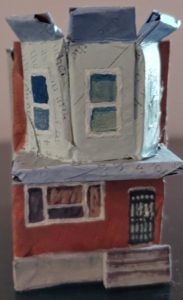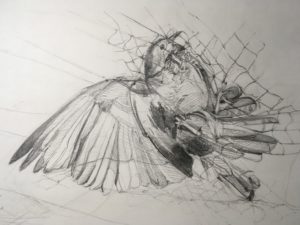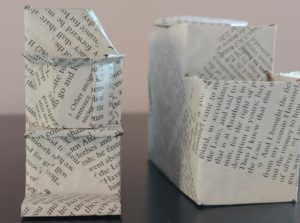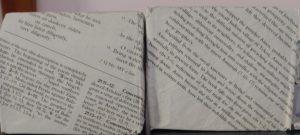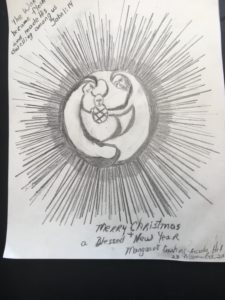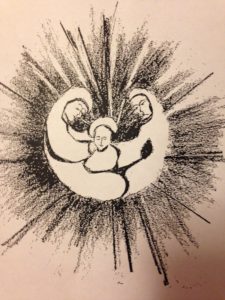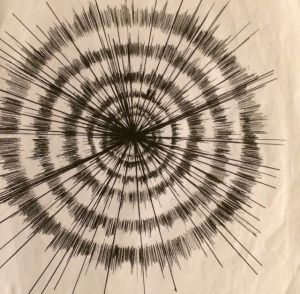Readings: Psalm 124; Isaiah 54:1-10; Matthew 24:23-35
If it had not been for the Lord who was on our side – let Israel now say-
if it had not been for the Lord who was on our side, when our enemies attacked us, then they would have swallowed us up alive, when their anger was kindled against us;
then the flood would have swept us away, the torrent would have gone over us; then over us would have gone the raging waters.
Blessed be the Lord, who has not given us as prey to their teeth.
We have escaped like a bird from the snare of the fowlers; the snare is broken, and we have escaped.
Our help is in the Lord, who made heaven and earth.
Psalm 124, NRSV
Anger, whether our own or directed at us, can knock us off our feet with its strength and sheer breadth. It is a torrential emotion, making enemies of those who release it and those who find themselves standing downstream from it. Left unchecked, it floods our lives with destruction. In its wake, we often feel like we only have two choices: drown or send our own tidal wave of anger back. Either way, the result is devastating.
But that’s a false choice, isn’t it? There is a third way. When we remember that the one who made heaven and earth holds us fast, we remember that no flood of anger can sweep us out of God’s loving embrace. Our spirits are safe. We don’t have to be overwhelmed, and we don’t have to send our own flash flood of anger to inflict damage on those who would hurt us. We can stop the flood of destruction simply by standing fast.
Even better: we can have compassion for the ones who destroy their own inner lives just as surely as they attempt to destroy us. By the grace of God, we may even be able to retaliate with peace and love instead of hurt and anger. It may take some time and patience to withhold our anger, but isn’t the possibility of stopping the raging waters worth the effort?
Lord, hold me fast as I walk home to Bethlehem. Amen.
[Rowhouse by Colin Fredrickson]

